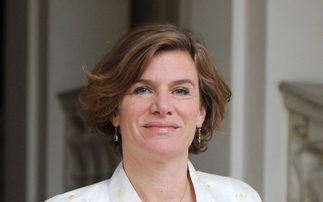Today marks 100 days since the Paris Agreement was reached - we asked green leaders whether their feelings toward the deal have changed since the dramatic denouement of the summit
Mark Campanale, founder & executive director, Carbon Tracker
"I think the COP saw a new constituency - institutional investors - speak up for the first time to Governments and policymakers. Also the intervention of the Financial Stability Board is important. Investor initiatives such as the Montreal Pledge and the Portfolio Decarbonisation Coalition are gaining traction; I spoke at a European foundation event that announced that $3.4 trillion of foundations and faith groups and pension funds had pledged to divest from coal, many also oil and gas. So more investors are getting on top of the risks and beginning to engage with companies on the importance of the energy transition.
"[But] post-Paris, a significant proportion of thee fossil fuel industry is promoting 'business as usual' and are planning for a dramatic increase in production of oil and gas, but also of coal. Paris set the goal of reducing emissions by 25-30 per cent over the next couple of decades, but the fossil fuel companies are planning to increase production by the same amount over the same period. The IEA estimates $28-30tr will be invested across fossil fuels in the next couple of decades. That capital has to be diverted into more useful and long lasting investments such as clean energy infrastructure. The fossil fuel companies are betting 100 per cent that governments won't act. I don't think they're calling that one right and investors are wary now more than ever before of following the wrong path.
"I'd like to see investors and governments working together to firstly scale back investments into fossil fuels, particularly by cancelling new projects not needed in a two degree scenario. At Carbon Tracker we've published our ‘Two trillion dollar danger zone' report which goes into these projects in detail. They the same group, plan and get going the diversion of capital into clean energy - what we call with our partners at CEREs, the ‘clean trillion', which is a trillion a year for about 30 years to get us down to 2 degrees. A lot more pension funds are going ‘two degrees compliant' and getting fossil fuel companies to undertake a ‘two degree stress test' - which are important steps. We now need to accelerate and scale that up."
David Nussbaum, chief executive, WWF UK
"Given the consequences of failure, which don't need spelling out, optimism is the only strategy! Indeed WWF has an optimistic approach to all the challenges we face - because it's entirely feasible to build a world in which both people and nature thrive together. It's hugely encouraging that more businesses are coming around to that view, and are taking an enlightened approach to the management of natural capital in a way that mitigates against climate change while preserving the resources that underpin both the economy and the biodiversity that keeps the planet healthy.
"I'd like to see a change of heart at the highest levels of government in the UK - particularly within the Treasury. We need to embrace green energy, stop subsidising fossil fuels and start properly to value and manage our natural resources. In immediate policy terms that means setting a strong fifth carbon budget which unambiguously signals to business and international investors that the way forward for the UK is a swift and decisive transition to a low-carbon economy. This would also help put the UK back on course to a market-leading position internationally as the whole world moves towards a low carbon future.
"Secondly, I'd like to see fast progress in two respects on the financial front: getting funds for mitigation and adaptation flowing, and putting in measures which effectively put a price on carbon across the major economies of the world.
"And thirdly, I think we need to tackle unfinished business from COP21. In particular, we still need a mechanism in place to reduce emissions from aviation in line with the Paris agreement. So a fair and ambitious global deal at the ICAO Assembly in Montreal this autumn, please."
Peter Bakker, president, World Business Council Sustainable Development
"The Paris Agreement is crucial. It's shifted the "burden of proof" from those arguing for climate action to the simple question of "what solution will your company implement" in order for the world to get to the agreed outcome. The Paris Agreement will accelerate the momentum of solutions implementation by both governments and business."
Nigel Topping, chief executive, We Mean Business
"I was euphoric when the Paris Agreement was signed in December, and 100 days on I am solidly optimistic that business and investors will translate policy into action and implementation. I am excited about the global economic opportunities that are starting to emerge from the Agreement.
"We Mean Business would like to see many more businesses making their bold goals on climate more public. I would also like to recognize that the implementation of the business commitments between now and 2020 is an opportunity to accelerate the deployment of capital to clean solutions around the world."
Richard Black, director, Energy & Climate Intelligence Unit
"Of course the Paris Agreement isn't any longer at the top of most people's minds and certainly not top of the news agenda - that's back to its usual cheery diet of wars, migration and of course, in Europe, Brexit. However, below the surface there's no doubt that things are happening. Would JP Morgan have pulled back on coal financing were it not for Paris? Would Vietnam be reviewing its coal infrastructure? There are many similar commitments. The other key thing is that the Paris Agreement makes it virtually certain that the $100bn per year in climate finance will materialise, which will enable developing countries to deliver their commitments, their INDCs, in full - and serve to embarrass them if they don't.
"One logical next step would be for different sectors of the global economy such as aviation, steel or farming to look in depth at how they can deliver the promised emission cuts. That kind of technical work could be very useful at this stage. Another would be for the organisations that brought governments to the agreement, such as churches, to set targets against which they can measure governments' progress towards meeting the "well below 2C" target and holding them to account. Because that's what enacting the Paris Agreement entails - each government setting out a number of concrete policies to reduce emissions, and then following through. Governments have promised something very special - but promises alone won't deliver the Paris Agreement."
This article is part of BusinessGreen's Road to Paris hub, hosted in association with PwC.










